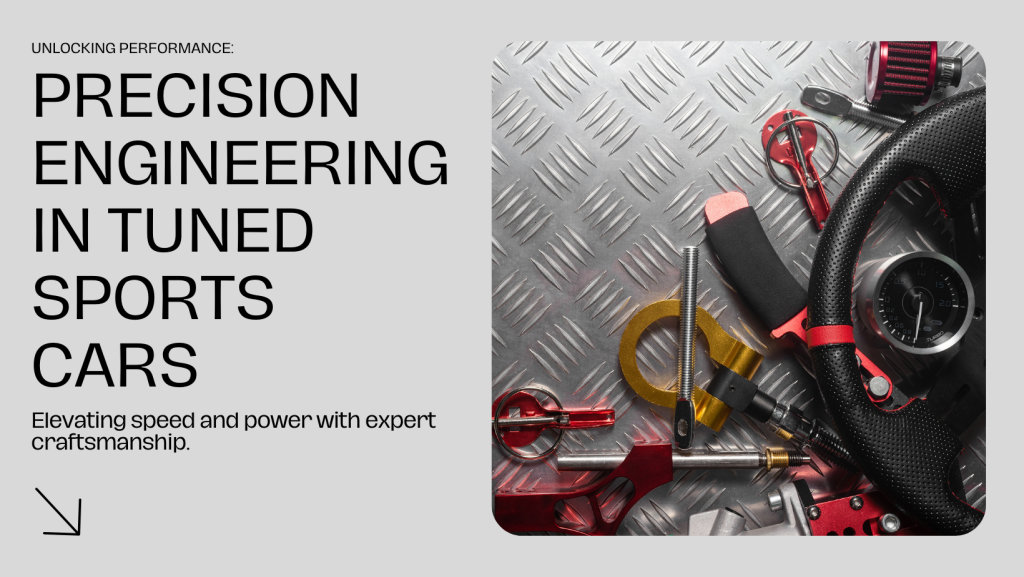Tuning sports cars to achieve peak performance requires precision engineering and meticulous attention to detail. From optimizing engine parameters to fine-tuning suspension geometry and aerodynamics, every aspect of a tuned sports car plays a crucial role in its overall performance and driving experience. Let’s explore how precision engineering unlocks performance in tuned sports cars:
- Engine optimization: The engine is the heart of any sports car, and optimizing its performance is paramount in tuning. Precision engineering techniques, such as dyno tuning and engine mapping, allow tuners to fine-tune fuel delivery, ignition timing, and airflow for maximum power and efficiency. Aftermarket performance parts, such as high-flow air intakes, upgraded fuel injectors, and performance exhaust systems, further enhance engine performance and responsiveness.
- Suspension geometry: Suspension tuning is essential for achieving optimal handling and cornering capabilities in tuned sports cars. Precision engineering techniques, such as suspension kinematics analysis and chassis dynamics simulations, help engineers optimize suspension geometry, spring rates, and damping characteristics for improved ride quality and responsiveness. Adjustable suspension components, such as coilover systems and camber plates, allow drivers to fine-tune their cars’ handling characteristics for different driving conditions and preferences.
- Aerodynamic optimization: Aerodynamics play a critical role in enhancing performance and stability in tuned sports cars. Precision engineering techniques, such as wind tunnel testing and computational fluid dynamics (CFD) simulations, enable engineers to optimize aerodynamic components, such as front splitters, rear wings, and diffusers, for maximum downforce and minimum drag. By fine-tuning airflow patterns and reducing aerodynamic drag, engineers can improve high-speed stability and cornering grip, allowing drivers to push their cars to the limit with confidence.
- Weight reduction: Weight reduction is key to improving performance and agility in tuned sports cars. Precision engineering techniques, such as finite element analysis (FEA) and lightweight materials selection, help engineers identify and eliminate excess weight from the vehicle’s structure and components. Carbon fiber body panels, aluminum suspension components, and lightweight forged wheels reduce unsprung weight and rotational inertia, improving acceleration, braking, and handling dynamics.
- Integration and optimization: Precision engineering is about more than just individual components; it’s about optimizing the entire vehicle as a cohesive system. Tuning enthusiasts employ advanced data acquisition systems and telemetry analysis tools to monitor and optimize performance parameters in real-time. By integrating engine, suspension, aerodynamics, and drivetrain systems, engineers can fine-tune every aspect of a sports car to achieve maximum performance and driving pleasure.
In conclusion, precision engineering is the key to unlocking performance in tuned sports cars. By applying advanced engineering techniques and meticulous attention to detail, tuners can optimize every aspect of a sports car’s performance, from engine power and suspension geometry to aerodynamics and weight distribution. With a passion for precision and a commitment to excellence, tuning enthusiasts continue to push the boundaries of performance and innovation in the world of sports car tuning.

